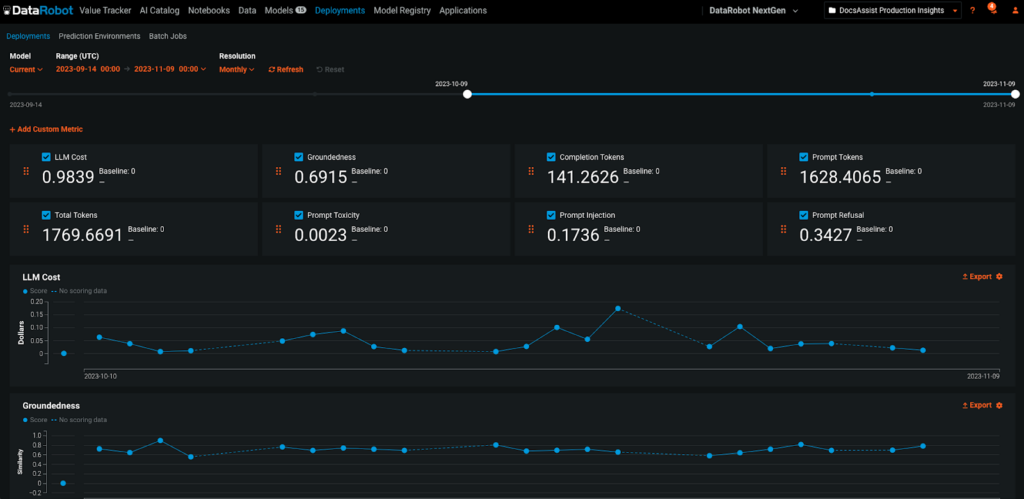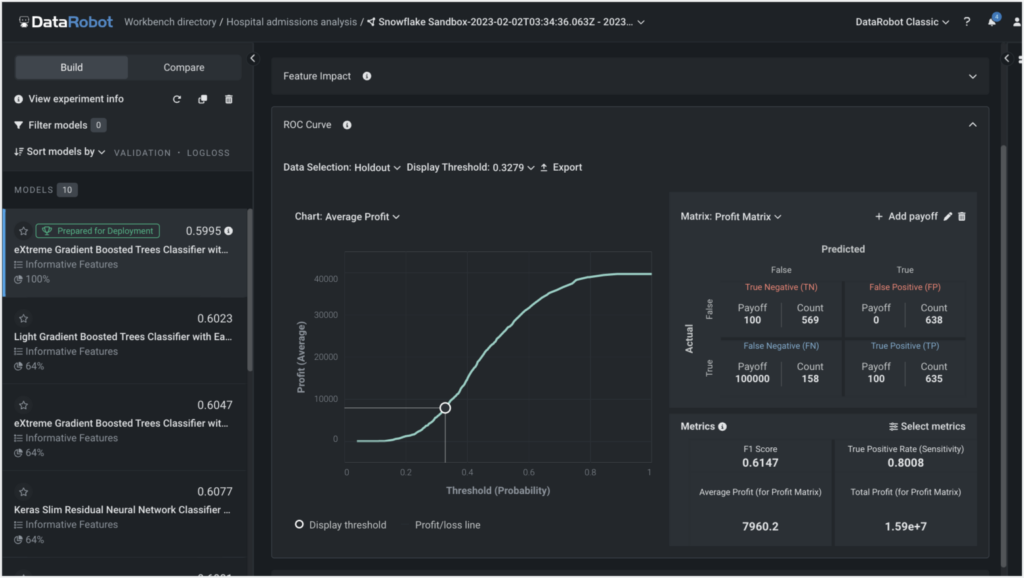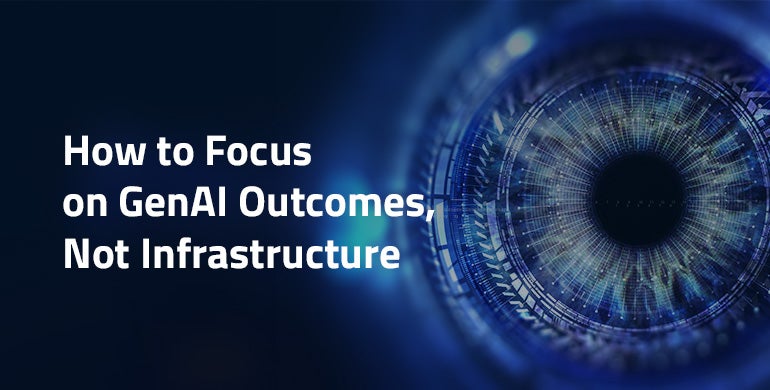Are you seeing tangible outcomes out of your funding in generative AI — or is it beginning to really feel like an costly experiment?
For a lot of AI leaders and engineers, it’s exhausting to show enterprise worth, regardless of all their exhausting work. In a latest Omdia survey of over 5,000+ international enterprise IT practitioners, solely 13% of have totally adopted GenAI applied sciences.
To cite Deloitte’s latest research, “The perennial query is: Why is that this so exhausting?”
The reply is advanced — however vendor lock-in, messy knowledge infrastructure, and deserted previous investments are the highest culprits. Deloitte discovered that at the very least one in three AI applications fail on account of knowledge challenges.
In case your GenAI fashions are sitting unused (or underused), likelihood is it hasn’t been efficiently built-in into your tech stack. This makes GenAI, for many manufacturers, really feel extra like an exacerbation of the identical challenges they noticed with predictive AI than an answer.
Any given GenAI mission accommodates a hefty combine of various variations, languages, fashions, and vector databases. And everyone knows that cobbling collectively 17 totally different AI instruments and hoping for the very best creates a scorching mess infrastructure. It’s advanced, sluggish, exhausting to make use of, and dangerous to control.
With out a unified intelligence layer sitting on prime of your core infrastructure, you’ll create larger issues than those you’re attempting to resolve, even for those who’re utilizing a hyperscaler.
That’s why I wrote this text, and that’s why myself and Brent Hinks mentioned this in-depth throughout a latest webinar.
Right here, I break down six ways that can provide help to shift the main focus from half-hearted prototyping to real-world worth from GenAI.
6 Techniques That Substitute Infrastructure Woes With GenAI Worth
Incorporating generative AI into your current methods isn’t simply an infrastructure drawback; it’s a enterprise technique drawback—one which separates unrealized or damaged prototypes from sustainable GenAI outcomes.
However for those who’ve taken the time to spend money on a unified intelligence layer, you possibly can keep away from pointless challenges and work with confidence. Most firms will stumble upon at the very least a handful of the obstacles detailed under. Listed here are my suggestions on methods to flip these widespread pitfalls into development accelerators:
1. Keep Versatile by Avoiding Vendor Lock-In
Many firms that wish to enhance GenAI integration throughout their tech ecosystem find yourself in one among two buckets:
- They get locked right into a relationship with a hyperscaler or single vendor
- They haphazardly cobble collectively varied element items like vector databases, embedding fashions, orchestration instruments, and extra.
Given how briskly generative AI is altering, you don’t wish to find yourself locked into both of those conditions. It is advisable to retain your optionality so you possibly can rapidly adapt because the tech wants of your small business evolve or because the tech market modifications. My advice? Use a versatile API system.
DataRobot may also help you combine with all the main gamers, sure, however what’s even higher is how we’ve constructed our platform to be agnostic about your current tech and slot in the place you want us to. Our versatile API offers the performance and suppleness that you must really unify your GenAI efforts throughout the prevailing tech ecosystem you’ve constructed.
2. Construct Integration-Agnostic Fashions
In the identical vein as avoiding vendor lock-in, don’t construct AI fashions that solely combine with a single software. For example, let’s say you construct an software for Slack, however now you need it to work with Gmail. You might need to rebuild your complete factor.
As a substitute, intention to construct fashions that may combine with a number of totally different platforms, so that you may be versatile for future use circumstances. This gained’t simply prevent upfront improvement time. Platform-agnostic fashions may even decrease your required upkeep time, due to fewer customized integrations that have to be managed.
With the fitting intelligence layer in place, you possibly can deliver the facility of GenAI fashions to a various mix of apps and their customers. This allows you to maximize the investments you’ve made throughout your complete ecosystem. As well as, you’ll additionally have the ability to deploy and handle a whole bunch of GenAI fashions from one location.
For instance, DataRobot might combine GenAI fashions that work easily throughout enterprise apps like Slack, Tableau, Salesforce, and Microsoft Groups.
3. Convey Generative And Predictive AI into One Unified Expertise
Many firms battle with generative AI chaos as a result of their generative and predictive fashions are scattered and siloed. For seamless integration, you want your AI fashions in a single repository, regardless of who constructed them or the place they’re hosted.
DataRobot is ideal for this; a lot of our product’s worth lies in our capacity to unify AI intelligence throughout a corporation, particularly in partnership with hyperscalers. Should you’ve constructed most of your AI frameworks with a hyperscaler, we’re simply the layer you want on prime so as to add rigor and specificity to your initiatives’ governance, monitoring, and observability.
And this isn’t only for generative or predictive fashions, however fashions constructed by anybody on any platform may be introduced in for governance and operation proper in DataRobot.

4. Construct for Ease of Monitoring and Retraining
Given the tempo of innovation with generative AI over the previous 12 months, lots of the fashions I constructed six months in the past are already outdated. However to maintain my fashions related, I prioritize retraining, and never only for predictive AI fashions. GenAI can go stale, too, if the supply paperwork or grounding knowledge are outdated.
Think about you have got dozens of GenAI fashions in manufacturing. They might be deployed to every kind of locations reminiscent of Slack, customer-facing purposes, or inside platforms. In the end your mannequin will want a refresh. Should you solely have 1-2 fashions, it will not be an enormous concern now, but when you have already got a list, it’ll take you a variety of handbook time to scale the deployment updates.
Updates that don’t occur by means of scalable orchestration are stalling outcomes due to infrastructure complexity. That is particularly crucial while you begin considering a 12 months or extra down the highway since GenAI updates often require extra upkeep than predictive AI.
DataRobot presents mannequin model management with built-in testing to verify a deployment will work with new platform variations that launch sooner or later. If an integration fails, you get an alert to inform you concerning the failure instantly. It additionally flags if a brand new dataset has further options that aren’t the identical as those in your at present deployed mannequin. This empowers engineers and builders to be much more proactive about fixing issues, relatively than discovering out a month (or additional) down the road that an integration is damaged.
Along with mannequin management, I take advantage of DataRobot to watch metrics like knowledge drift and groundedness to maintain infrastructure prices in verify. The easy fact is that if budgets are exceeded, tasks get shut down. This may rapidly snowball right into a scenario the place complete teamsare affected as a result of they will’t management prices. DataRobot permits me to trace metrics which can be related to every use case, so I can keep knowledgeable on the enterprise KPIs that matter.
5. Keep Aligned With Enterprise Management And Your Finish Customers
The most important mistake that I see AI practitioners make shouldn’t be speaking to individuals across the enterprise sufficient. It is advisable to herald stakeholders early and discuss to them typically. This isn’t about having one dialog to ask enterprise management in the event that they’d be all for a selected GenAI use case. It is advisable to repeatedly affirm they nonetheless want the use case — and that no matter you’re engaged on nonetheless meets their evolving wants.
There are three parts right here:
- Interact Your AI Customers
It’s essential to safe buy-in out of your end-users, not simply management. Earlier than you begin to construct a brand new mannequin, discuss to your potential end-users and gauge their curiosity degree. They’re the buyer, and they should purchase into what you’re creating, or it gained’t get used. Trace: Be certain no matter GenAI fashions you construct want to simply connect with the processes, options, and knowledge infrastructures customers are already in.
Since your end-users are those who’ll in the end resolve whether or not to behave on the output out of your mannequin, that you must guarantee they belief what you’ve constructed. Earlier than or as a part of the rollout, discuss to them about what you’ve constructed, the way it works, and most significantly, the way it will assist them accomplish their targets.
- Contain Your Enterprise Stakeholders In The Growth Course of
Even after you’ve confirmed preliminary curiosity from management and end-users, it’s by no means a good suggestion to simply head off after which come again months later with a completed product. Your stakeholders will nearly definitely have a variety of questions and steered modifications. Be collaborative and construct time for suggestions into your tasks. This helps you construct an software that solves their want and helps them belief that it really works how they need.
- Articulate Exactly What You’re Making an attempt To Obtain
It’s not sufficient to have a purpose like, “We wish to combine X platform with Y platform.” I’ve seen too many shoppers get hung up on short-term targets like these as a substitute of taking a step again to consider total targets. DataRobot offers sufficient flexibility that we might be able to develop a simplified total structure relatively than fixating on a single level of integration. It is advisable to be particular: “We would like this Gen AI mannequin that was in-built DataRobot to pair with predictive AI and knowledge from Salesforce. And the outcomes have to be pushed into this object on this manner.”
That manner, you possibly can all agree on the top purpose, and simply outline and measure the success of the mission.

6. Transfer Past Experimentation To Generate Worth Early
Groups can spend weeks constructing and deploying GenAI fashions, but when the method shouldn’t be organized, all the ordinary governance and infrastructure challenges will hamper time-to-value.
There’s no worth within the experiment itself—the mannequin must generate outcomes (internally or externally). In any other case, it’s simply been a “enjoyable mission” that’s not producing ROI for the enterprise. That’s till it’s deployed.
DataRobot may also help you operationalize fashions 83% quicker, whereas saving 80% of the conventional prices required. Our Playgrounds characteristic provides your crew the artistic house to match LLM blueprints and decide the very best match.
As a substitute of constructing end-users look ahead to a closing answer, or letting the competitors get a head begin, begin with a minimal viable product (MVP).
Get a fundamental mannequin into the fingers of your finish customers and clarify that it is a work in progress. Invite them to check, tinker, and experiment, then ask them for suggestions.
An MVP presents two very important advantages:
- You’ll be able to affirm that you just’re transferring in the fitting course with what you’re constructing.
- Your finish customers get worth out of your generative AI efforts rapidly.
When you might not present a good consumer expertise together with your work-in-progress integration, you’ll discover that your end-users will settle for a little bit of friction within the quick time period to expertise the long-term worth.
Unlock Seamless Generative AI Integration with DataRobot
Should you’re struggling to combine GenAI into your current tech ecosystem, DataRobot is the answer you want. As a substitute of a jumble of siloed instruments and AI belongings, our AI platform might provide you with a unified AI panorama and prevent some severe technical debt and trouble sooner or later. With DataRobot, you possibly can combine your AI instruments together with your current tech investments, and select from best-of-breed parts. We’re right here that can assist you:
- Keep away from vendor lock-in and forestall AI asset sprawl
- Construct integration-agnostic GenAI fashions that can stand the check of time
- Hold your AI fashions and integrations updated with alerts and model management
- Mix your generative and predictive AI fashions constructed by anybody, on any platform, to see actual enterprise worth
Able to get extra out of your AI with much less friction? Get began right this moment with a free 30-day trial or arrange a demo with one among our AI consultants.

